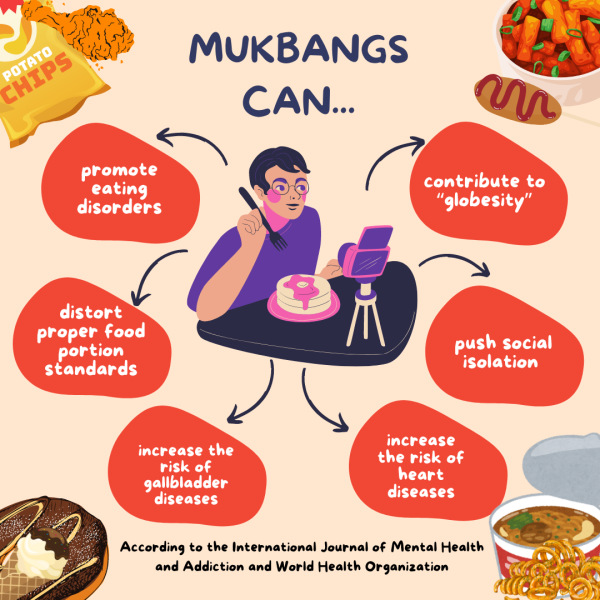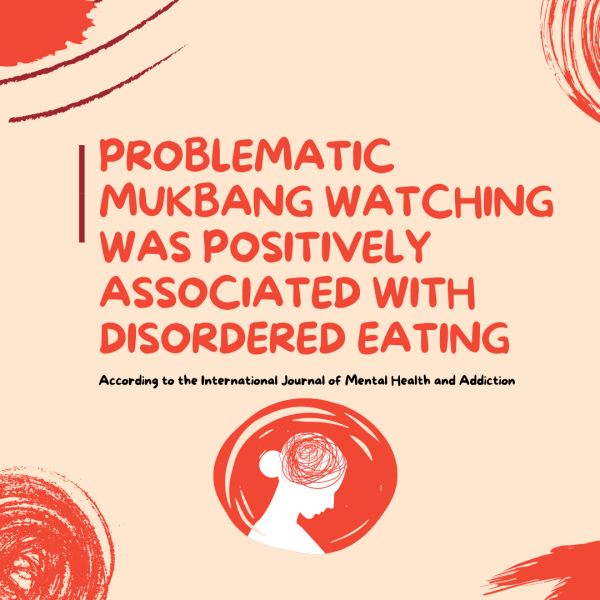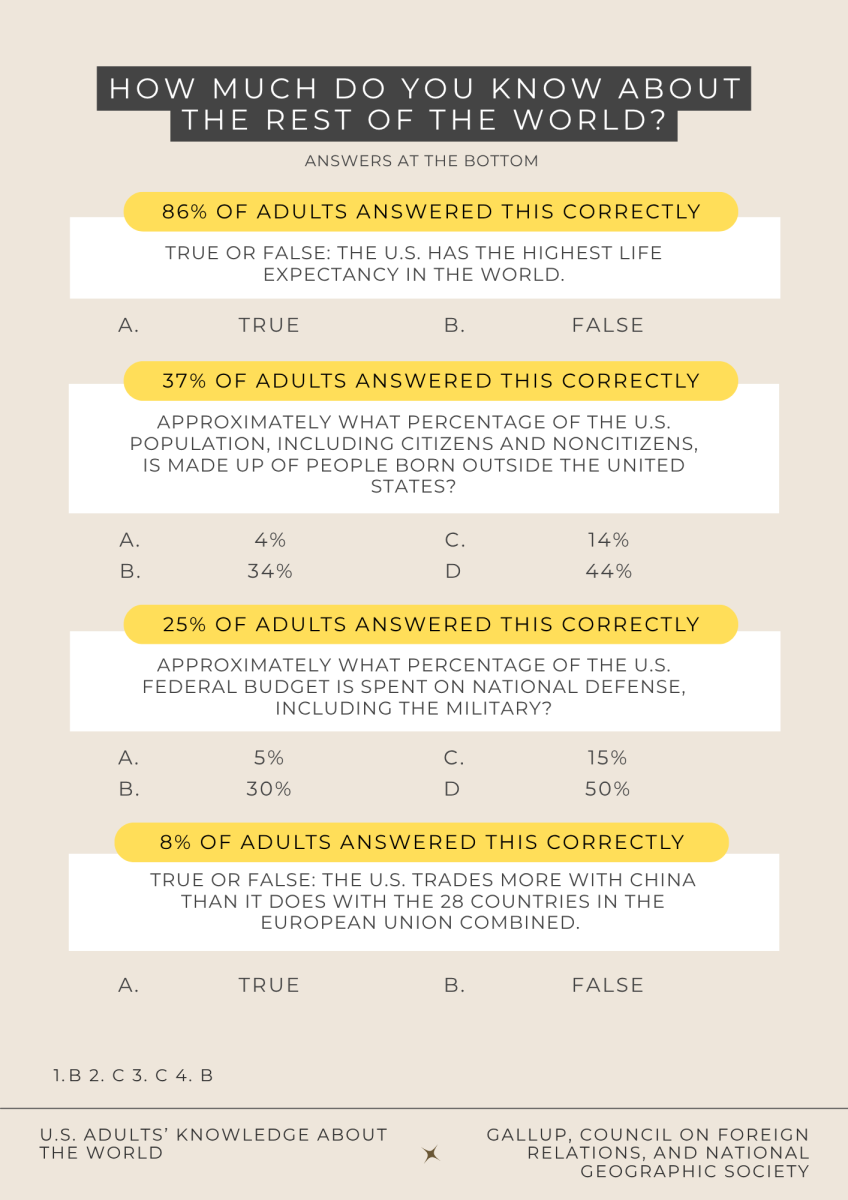
Three, two, one… go! The camera clicks and whirs as a mukbanger starts eating different piles of junk food. Three buckets of fried chicken and two pizzas. Maybe add a box of donuts. The list goes on: loaded fries, ramen, burgers, tubs of ice cream– all pounds of junk.
Originating from South Korea, a mukbang is the act of eating large quantities of food, often in timed periods, while being recorded. South Korea’s communal culture of eating prompted individuals to look for a way to reduce increased feelings of loneliness, leading them to mukbangs. These videos or live streams are often easily accessible through platforms such as Twitch, AfreecaTV, TikTok and YouTube. Soon, global attention to mukbangs progressed through Hallyu, the global spread of Korean culture through K-pop, K-cinema, K-beauty and more. With greater attention on South Korea, the way mukbangs were used started to change dramatically.
Unfortunately, many chose mukbanging as a career, aligning their content to the internet’s desire to see extreme overeating. According to the Sage Journal, videos with increased levels of overeating were watched significantly more than videos with appropriate food portions along with timed challenges. On top of that, mukbang videos with spicy or irritating foods had a four fold increase in viewers.
The majority of mukbangs display “gorging” behaviors. These are acts of extreme overeating that can cause potential health issues for a mukbanger while promoting eating disorders to the audience. Thinking abstractly, modern mukbangs are disgusting.
Streamers either monetize their eating disorders or put on a facade that is potentially harmful for viewers because they either eat all the food or eat it then purge, which is harmful. Or they simply fake it, imposing false standards and beliefs on viewers. Sadly, studies show that problematic mukbang watching was positively correlated with disordered eating.
According to the International Journal of Mental Health and Addiction, the quantity of food eaten by mukbangers is so large that it can distort an audience’s perception of what is deemed as an appropriate portion. Additionally, it can push individuals to change their food selection to foods similar to mukbangs, normalizing large amounts of food and low-nutritional, high calorie foods.

Extreme overeating can also pose various health risks, including increased risks of weight gain, heart diseases, type two diabetes and gallbladder diseases. The obesity epidemic is a growing issue, many times being referred to as “globesity.” According to the World Health Organization, in 2022, one in eight people in the world were reportedly obese, showing an overall doubled growth for adults and quadrupled growth for teens since 1990. Mukbangs, in essence, promote obesity through glamorizing overeating. For the people who are the viewers, the more eaten is more impressive.
Funny enough, many times the food seen isn’t actually even… eaten. Many mukbangers have been embroiled in controversy over the alleged findings of false authenticity and food waste, such as mukbanger Eat With Boki, who’s followers noticed editing errors where clips have been cut out during swallowing.
As watching mukbangs can provide comfort, it does so in the wrong ways. It promotes excessive escapism, being counterintuitive to its original purpose of inclusivity and promoting the growth of isolation. Live chats with the mukbangers in the comments proved to be a major pull for viewers. Some viewers even prefer eating alone in their rooms while watching mukbangs as opposed to eating with their family. Unlike its original purpose, mukbangs have grown to discourage communal culture; as their desire is satisfied by a person streaming through a screen.
At the end of the day, mukbangs originally had positive intentions. However, the sight of mukbangers stuffing their faces for a camera has shown how far the desire to reduce loneliness has gone astray. To combat this, promotions of healthier food and portions can be implemented, such as the sub-genre of mukbangs involving home-cooked foods. Likewise, a push for more community guidelines, warnings, age restrictions and policies on all mukbang streaming platforms can help to further add in restoring mukbang’s original purpose of inclusivity– without the extreme sides of the spectrum.








